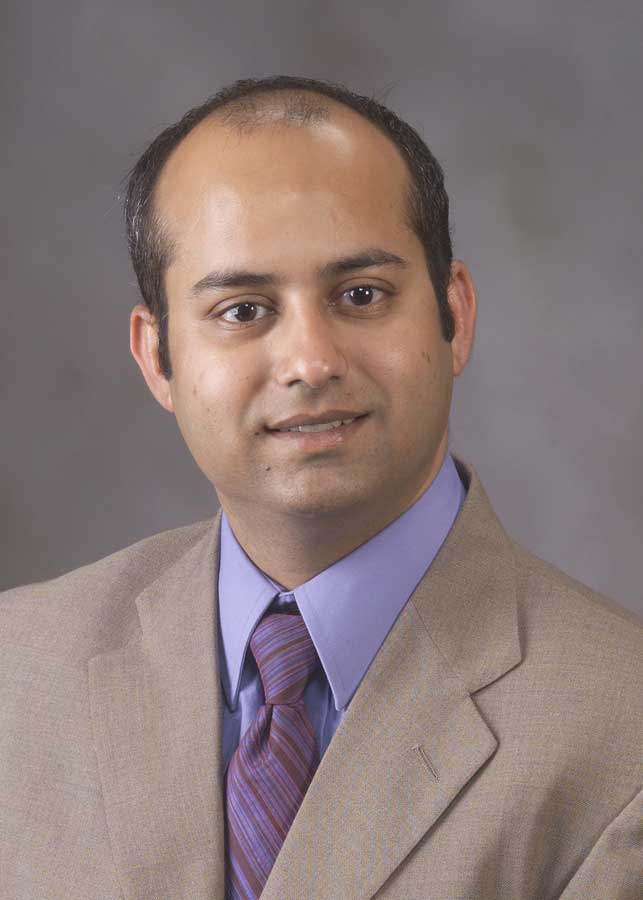Shukla receives Humboldt Foundation award

Sandeep Shukla, Virginia Tech associate professor of electrical and computer engineering, has received a Friedrich Wilhelm Bessel Research Award from the Alexander Humboldt Foundation of Germany.
Shukla, who came to Virginia Tech in 2002, is a leading researcher in designing, analyzing, and predicting performance of electronic systems, particularly systems embedded in automated systems.
The Besssel award is available annually to no more than 25 scientists and scholars, internationally renowned in their field, who completed their doctorates less than 12 years ago. The recipients are also expected to continue producing cutting-edge achievements that will have a seminal influence on their discipline beyond their immediate field of work. This award is also known as a long-term achievement award and is based on nomination by German scholars and scientists.
Shukla was recognized for his technological achievements in 2004 when he received a Presidential Early Career Award for Scientists and Engineers (PECASE), the highest national honor for researchers in the early stages of their careers. The research that attracted the award focuses on power/performance trade-off analysis for designing embedded systems, and includes a related educational component.
"The computing world is moving from the desktop and workstation to an arena of embedded and wearable computers," Shukla said. More and more, embedded computers are becoming the brains behind mechanisms that we rely on in our everyday lives — such as wireless devices, cars, automated elevators, climate control systems, traffic signals, and washing machines. Embedded computers also constitute the backbone of our complex systems, including space mission controls, avionics, and weapons systems.
“Power/performance trade-offs are important because most embedded computers are powered by rechargeable batteries,” Shukla said. Space is limited in host devices, so embedded computers typically operate on small, low-power batteries. Two performance factors are critical to embedded computers — speed and quality of service — and if batteries supply too little power, computer performance is reduced.
In 2003 Shukla and colleagues in electrical and computer engineering, computer science, and mathematics founded the Center for Embedded Systems for Critical Applications, with the goal of moving Virginia Tech to the forefront of research and education in the area of embedded systems. Shukla is deputy director of the center, which operates under the umbrella of the university’s Institute for Critical Technology and Applied Science. Shukla’s research lab, Formal Engineering Research with Models, Abstractions and Transformations (FERMAT), is active in applying formal methods to the engineering, verification, and synthesis of embedded hardware and software systems.
As a Bessel Award recipient, Shukla is invited to spend a period of up to one year cooperating on a long-term research project with specialist colleagues at a research institution in Germany. The stay may be divided up into blocks.



